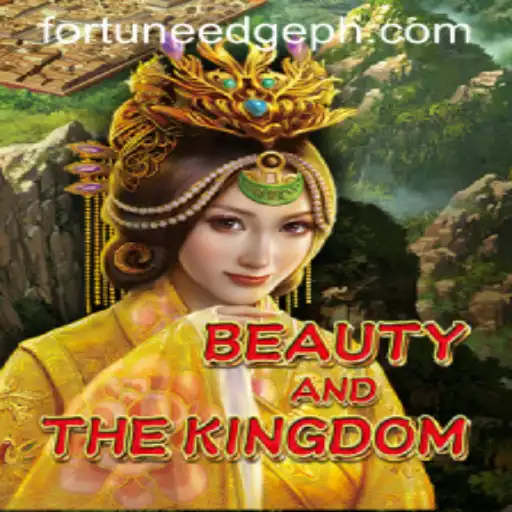Jueteng


Fortune's Edge: The Complex World of Jueteng

Fortune's Edge: The Complex World of Jueteng
In the heart of the Philippines, a country rich with tradition and culture, lies a clandestine world veiled in mystery and allure. This is the world of Jueteng, a numbers game that stands as both a controversial shadow over society and a reflection of its deep-rooted complexities. Known colloquially as the poor man's lottery, Jueteng holds a divisive place in Filipino life. With the captivating moniker Fortune's Edge, Jueteng continues to thrive, not just as an underground economic activity, but as a symbol of many societal contradictions.
The Historical Tapestry of Jueteng
Jueteng traces its origins to the occupying Spaniards, weaving a narrative that dates back to the colonial era. Back then, it was merely a harmless pastime, but it quickly evolved into a staple of local culture, embedded in the daily life of many Filipinos. Over the decades, Jueteng has transformed, becoming more than a game of chance; it's entwined with the economic and social fabric of the nation.
Its proliferation is fueled by its grassroots accessibility and the promise of instant wealth. Unlike state-sanctioned lotteries, Jueteng operates at a micro level, flourishing in barrios where government presence is minimal. These factors combined render Jueteng not just a game, but a livelihood for some, and an institution that has managed to resist numerous attempts at eradication.
Understanding the Mechanics
The operational dynamics of Jueteng are deceptively simple yet deeply intricate. Participants pick a set of numbers, generally from one to thirty-seven, and place their bets with a local cobrador or collector. These brokers then relay the bets to the kabo, who aggregates and organizes the stakes before the numbers are drawn, often in secretive ceremonies devoid of the pomp and regulation of official lottery systems.
This local network functions under the radar of legality, thriving on its simplicity and word-of-mouth nature. This adds an element of mystique and exclusivity, aspects that add to its allure for those seeking to tempt fate and grasp fortune's slippery edge.
Economic and Social Implications
At its core, Jueteng is more than just a gambling scheme—it's an informal economic structure. In many areas, it serves as a pseudo employment opportunity, providing income for those involved in its operations. For participants, the promise of a life-changing payout, however slim the odds, is a compelling motivator to participate, often outshining the allure of formal, government-sponsored lotteries.
The social implications are equally profound. Jueteng perpetuates a cycle of dependency on chance rather than cementing reliance on systemic economic opportunities. In participating, individuals invest not just financially, but emotionally, driven by stories of overnight wealth and reinvigorated hopes.
The Intersection with Politics and Governance
In a political context, Jueteng is an entity intertwined with corruption narratives, extending its reach into the corridors of governance. While public officials may denounce it, allegations often arise about their tacit involvement, benefiting from the flows of money or receiving protection fees.
Contradictorily, Jueteng can bolster grassroots support for politicians who leverage its existence to curry favor among constituents, thereby weaving a complicated web of patronage politics. This duality serves as a stark reminder of the pervasive challenge Jueteng presents to effective governance and regulation.
Attempts at Regulation and Eradication
Efforts to curtail Jueteng's reach have spanned various administrations, often announced with fervent zeal but achieving limited success. Comprehensive crackdowns are frequently hindered by the game's adaptability and the willingness of participants to defy prohibition in lieu of the promised riches.
Several administrations have advocated for legal alternatives, hoping to disincentivize Jueteng by providing legitimate opportunities that capture the same appeal. Yet, these efforts frequently fall short, mired in bureaucratic inefficiencies and the deeply entrenched cultural appeal of the game.
Navigating the Future of Jueteng
As the nation moves forward, Jueteng remains a potent symbol of the societal dichotomies that persist. The challenge lies in addressing not just its legality but understanding its role in the communities that embrace it. There is no single path to dismantling Jueteng, given its multifaceted nature.
Society must grapple with questions of how to align economic opportunities with cultural realities. This involves not only providing parallel systems of hope and prosperity through legal means but also tackling the underlying socio-economic conditions that give rise to the necessity of Jueteng as an economic lifeline.
Concluding Thoughts
Jueteng, with its promises and perils, is a game played at Fortune's Edge. Those who partake understand both the risks and the potential rewards, motivations that continue to cloak it in a veneer of mysticism and intrigue. As much as it is vilified, it requires understanding, legislative foresight, and cultural sensitivity to untangle its complexities truly. The challenge for the Philippines is not just to legislate against an elusive game, but to innovate solutions that reflect both the needs and aspirations of its people while crafting a society where chance isn't the only path to prosperity.
BeautyAndTheKingdom: Exploring the Realm of Fortune's Edge
Discover the captivating world of BeautyAndTheKingdom and its latest expansion Fortune's Edge, a game that blends strategic gameplay with modern storytelling. Dive into its unique rules and exciting features.
BurningWinsX2: A Deep Dive into Fortune's Edge
Explore the thrilling world of BurningWinsX2, a captivating game that brings excitement and unpredictability through Fortune's Edge.
Unveiling the Thrills of 3cartsOfGold and Fortune's Edge
Explore the captivating new game 3cartsOfGold and its feature Fortune's Edge. Delve into its adventures, strategic gameplay, and the unique rules that shape this dynamic experience in the gaming world.
 Skip to content
Skip to content




